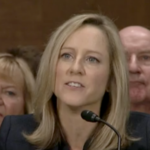The Second Circuit Court of Appeals has upheld a lower court’s ruling against a plaintiff — himself a plaintiff’s lawyer — who had accused a defendant of violating the Fair Debt Collection Practices Act by inquiring about the nature of a disputed debt, as well as sanctions against the plaintiff and his attorney for misleading the court, disregarding a protective order, and for “needlessly multiplying” the proceedings.
A copy of the ruling in Huebner v. Midland Credit Management and Midland Funding can be accessed by clicking here.
The plaintiff originally contacted the defendant to dispute a $131 unpaid debt. During the conversation, which the plaintiff recorded, an employee for the plaintiff inquired why the debt was being disputed. The defendant replied that the debt was “nonexistent” and that he would have to call back after reviewing his files. He instead chose to file a lawsuit against the plaintiff, alleging a violation of the FDCPA.
In the complaint, the plaintiff accused the defendant of requiring the debt be disputed only in writing and only if a cause for the dispute was provided. The plaintiff’s lawyer, during a conference, said that the recording would prove the plaintiff’s assertions. When he listened to the recording, the judge learned the allegation was false and fined the plaintiff’s lawyer $500 for failing to participate in the conference in good faith.
The plaintiff filed two more amended complaints, accusing the defendant of other FDCPA violations. The judge granted summary judgment in favor of the defendant. The judge also ordered the plaintiff and his attorney to pay some of the defendant’s legal fees because the plaintiff “had tried to trick Midland into violating the FDCPA during his initial call; his claim was meritless and prosecuted in bad faith; and both he and [the plaintiff’s lawyer’s firm] had needlessly multiplied the proceedings with, among other things, a baseless motion for recusal and a pretrial motion filed in flagrant disregard of the terms of the parties’ joint protective order.”
In its ruling affirming the lower court’s decision, the Appeals Court takes every opportunity to point out the ways in which the plaintiff and his lawyer tried to game the system in their favor, but were rebuffed at every turn, in some cases, by their own doing.
“…we conclude that the district court set forth sufficiently detailed factual findings establishing that Huebner, Poltorak, and Poltorak PC brought a frivolous case and filed several frivolous motions in bad faith,” the Appeals Court wrote. “The district court was therefore well within its discretion to sanction them.”









